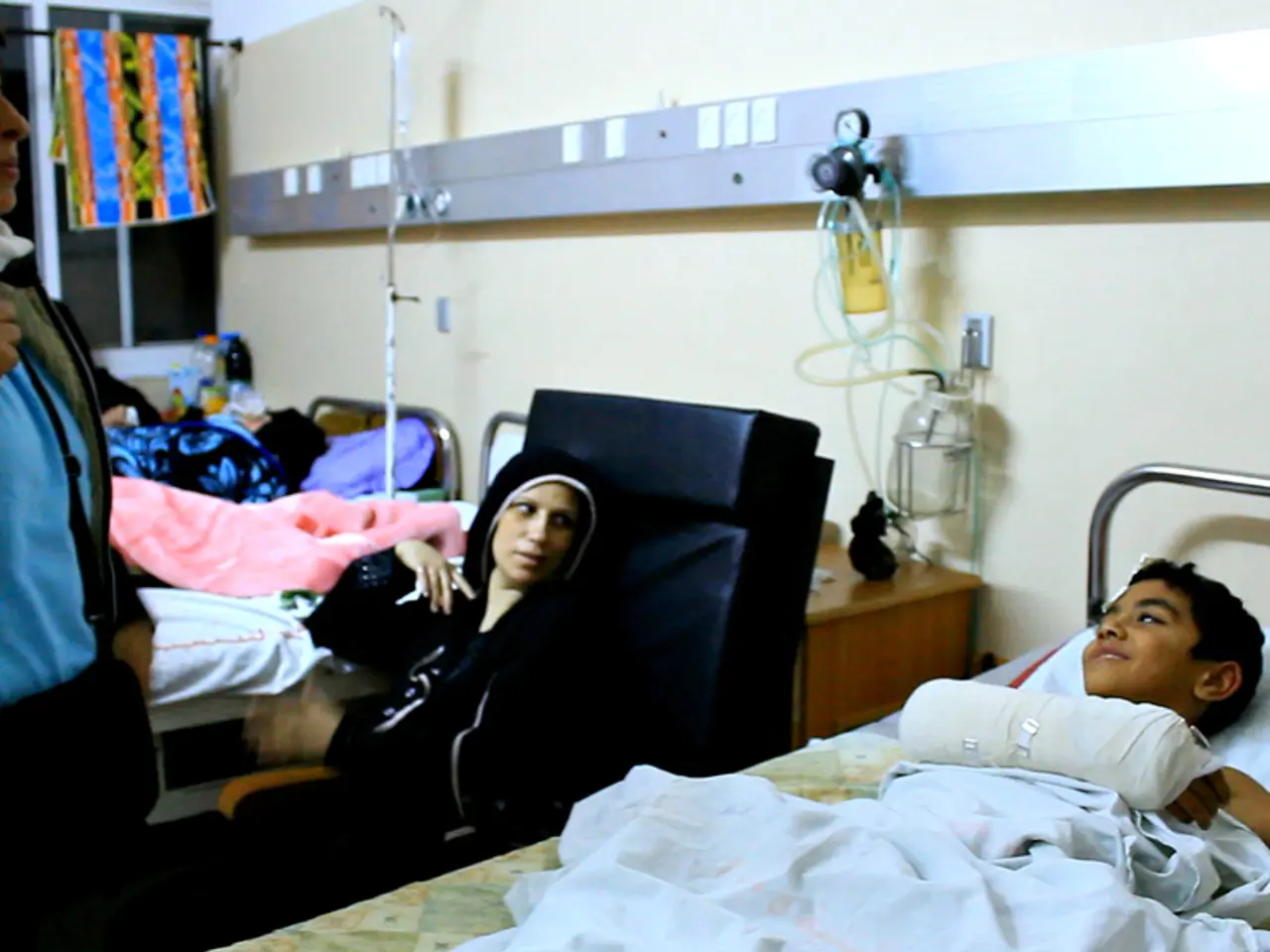"Half of the foreign nationals comprise our Azubi workforce"
In the heart of Ludwigsburg, Germany, nursing trainees Thérese Jocelyne Etounou Bene and Chrismaria Varghese are making a significant impact on the healthcare sector. Despite the language barrier and other challenges, both women express satisfaction with their training and enjoy helping people.
The RKH clinics Ludwigsburg-Bietigheim, where they are training, offers practical experience in clinics or other facilities. This hands-on approach is vital for nursing professionals, preparing them to meet the growing demand in the sector.
The nursing school in Kornwestheim is particularly welcoming to foreign trainees, with approximately half of its 300 trainees coming from abroad. This diversity is a testament to the school's commitment to fostering a global workforce.
However, foreign nursing trainees face several challenges. Achieving the required B2 level in German is a major difficulty, with complexities in grammar and adapting to regional dialects causing ongoing issues. Thérese Etounou Bene, for instance, had to start her training from scratch in Germany due to missing documents.
To retain these skilled foreign nursing trainees, Germany employs multiple strategies. The Triple Win Programme, for example, provides language training before and after arrival, career development support, and helps coordinate credential recognition. Comprehensive integration support includes language courses, bureaucratic assistance for qualification recognition, and cultural orientation programs.
The nursing school in Kornwestheim also offers a free language course for trainees, recognising the importance of language proficiency in their success. Principal Ursula Palmer, the head of the vocational school, is actively seeking new trainees to fill the vacant places.
Germany is facing a shortage of personnel, particularly in the healthcare sector. Without foreign staff, it is unlikely that the demand for nursing staff could be met. The high demand for staff is due to the increasing number of people in need of care. By 2040, the number of people in need of care is projected to reach six million.
Despite the challenges, both Thérese Etounou Bene and Chrismaria Varghese remain determined. Thérese's goal is to study medicine later on, while they share a common goal of completing their training as nursing professionals. Their stories serve as a testament to the opportunities the nursing profession provides for individuals like them.
The nursing school in Kornwestheim has a lower dropout rate compared to the national average, with only 6.9% of students quitting their training in 2024. This statistic underscores the effectiveness of the strategies in place to support foreign nursing trainees.
In conclusion, Germany recognises the importance of addressing language barriers and bureaucratic complexities to retain foreign nursing trainees and secure workforce sustainability by 2030. Through targeted language training, credentialing support, and integration assistance, these challenges are being addressed, ensuring a bright future for the nursing profession in Germany.
Science plays a crucial role in overcoming language barriers for foreign nursing trainees in Germany, as translation and interpretation tools based on advanced language models aid in understanding complex German dialects and medical terminologies. The science of health-and-wellness benefits greatly from such a diverse workforce, as different cultural perspectives can contribute to innovative approaches in patient care.




